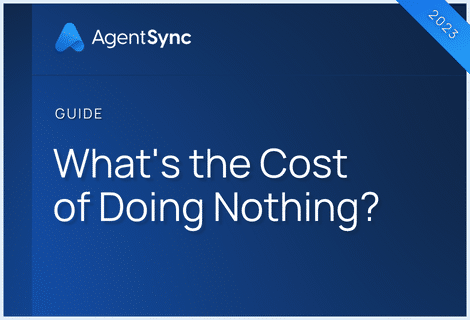

In a previous post, we talked about the National Association of Insurance Commissioner’s Producer Licensing Model Act and the 14 reasons it outlines for terminating a producer’s license.
Now, each one of those reasons may not necessarily result in the state insurance commissioner revoking a producer’s license; the model legislation also outlines and suggests other courses of action. Each one is not exactly a dream come true – it’s an annoyance at best, and a complete termination of your days in the insurance industry at worst – but, taken together, these outcomes for skirting state laws certainly reinforce the idea that the first and best course of action should always be to do the right thing from the outset.
Penalties for bad actors …
In the case that an insurance producer violates one of the 14 guidelines, the NAIC’s document outlines best practices for state penalties, and while each state varies and you should certainly educate yourself about the specifics of your states of operation, it’s quite likely you operate in states that follow some version of these guidelines.
If an agent or prospective agent commits one or more of the 14 violations:
- The insurance commissioner will provide written notification of an applicant’s denial or a licensee’s nonrenewal or revocation, including the state-specific procedures and timeline for appealing this decision.
- The state can levy civil fines in place of license suspension, revocation, or refusal, or a state can levy fines in addition to that suspension, revocation, or refusal.
- Regardless of whether an individual is licensed in a state, insurance violations are within the purview of the state insurance commissioner.
Basically, if you act outside of your licensure or act in a way that misrepresents insurance products or benefits, you can expect to have the state fine you or take your license. That shouldn’t come as a surprise, generally.
… And penalties for associated businesses such as agencies, MGAs, or carriers
What may be somewhat more surprising is how far those penalties may extend past an individual producer.
Pertaining to businesses, the model legislation says:
- The insurance commissioner could suspend, revoke, or refuse a business’ license if “an individual licensee’s violation was known or should have been known by one or more of the partners, officers or managers acting on behalf of the partnership or corporation.”
- A business may avoid being the direct target of action if it either reports a violation to the commissioner or takes action to correct the violation.
Broadly speaking, this piece of the legislation leaves it pretty open-ended as far as who’s on the hook for these violations. The idea here is that agencies, MGAs, or carriers could be in trouble not only if they were aware their agent was in violation of state law, but also if they should have been aware.
Connecting back to the penalties, that means an entire agency could lose their license and endure a state fine if they knew (or should have known) an agent was acting out of license and did nothing. While we find many in the insurance industry are surprised by this – “after all,” they may think, “we had our agents sign a contract taking responsibility for their own actions,” – this is a pretty natural extension of other insurance laws maintained by the states, such as the MGA Act.
Additionally, we know penalties for a business will in large part depend on the agent’s status within an organization. As we explored elsewhere, in some states, designated responsible licensed producers’ (DRLP) licenses are held to be synonymous with an agency’s license. Practically speaking, this means if you are your agency’s DRLP and you lose your license, your agency’s license (and possibly those of all the agents working under you!) is terminated in that state.

Because of the way the states support each other’s legal processes, it’s also entirely possible that a violation in one state results in penalties across the others. So just imagine the consequences that can arise for an agency whose DRLP’s violations in one state results in that state terminating their license. Not only would you have to reinstate your agency’s license with a new DRLP (and possibly renew any affiliated agents), you may have to get reappointed with your carriers, since many states automatically terminate carrier appointments if they have suspended or revoked an agent or agency’s license.
And imagine repeating that across any other states of operation, having to repeatedly explain what happened, why your license was jeopardized, and any protocols you’ve put in place to avoid future violations.
Now, sometimes these violations occur somewhat unknowingly. Other times, the intentionality of fraud is a driving factor. Regardless, if one bad apple can spoil the whole bunch, wouldn’t it be best to find that apple before it has time to fester?
AgentSync is a key weapon in an arsenal of tech designed to stop these kinds of violations before they even happen. Check out some of our other content to observe best practices on vetting and keeping agents in compliance, and see how AgentSync can help.

